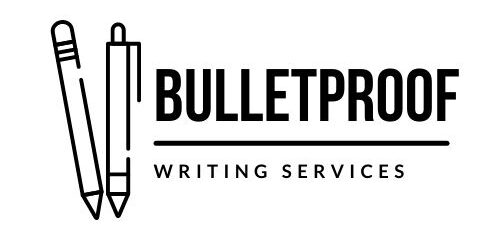
“Do I need a copyright?” I’m always surprised by how many writers ask me that. Writing is hard work. Every author knows that. You put in time and energy to write, revise, design, and publish your work, so you don’t want someone else to steal it or take credit for it. That’s why copyrighting your work is so important. To protect your published work, you absolutely need a copyright. But I understand that legal stuff can be overwhelming and intimidating. That’s why I’m breaking down the legal basics for you today. We’ll discuss what a copyright is, why registration is important, and when to file to best protect your work. Ready? Let’s dive in.
What Is a Copyright?
A copyright protects an original work of authorship from theft or infringement. For copyright laws to apply, your work must be in a tangible form:
- Literary work
- Film
- Musical work
- Sound record
- Broadcast
- Painting
- Blog
- Website content
In short, a copyright is legal protection for your intellectual property. Now, please note that merely producing an idea isn’t enough to warrant a copyright. For example, you can’t copyright the star-crossed lovers idea. Anyone can create a story using that trope. You can protect your own interpretation of that idea, though. West Side Story, Shakespeare in Love, and Romeo and Juliet all use the same trope, but the creators have copyrights for their individual interpretations.
Why Is Registration Important?
In the US, your work is copyrighted when you create it. However, you can’t sue for infringement unless you register your work with the Copyright Office in DC. Most lawyers will tell you that a common-law copyright isn’t helpful. To protect your work, you’ll need a registered copyright. By registering your work, your copyright will protect it for your lifetime, plus seventy years.
A Registered Copyright Protects More Than Your Manuscript
Your registered copyright includes more than just protection from theft or infringement. Once you’ve registered your work, you’ve also protected your related creative rights:
- Creating copies
- Distributing your work
- Performing your work publicly
- Displaying your work publicly
- Creating derivative works, like comic books, movies, TV shows, video games, or toys
The benefits of having a copyright don’t stop there. Your registration is a formal, public notice that you own this work. It provides legal evidence of your ownership. When you register with the Copyright Office, you’ll receive a certificate of registration, proving that you have a valid copyright. You can act against infringement. Your registration allows you to not only collect but maximize damages. It also entitles you to special protections under the new CASE procedures that help you expedite your court case.
Registering Your Copyright
Although you can register using snail mail, that will take about 12 months for the Copyright Office to process. You’re much better off filing at www.copyright.gov. But before you rush off to start the process, take a moment to strategize. Copyrighting is neither free nor fast, so you want to use your time and money efficiently and effectively here.
If you have a single work that you want to protect, the current fee is $45. (That’s the online rate.) That’s great if you have an 80,000-word manuscript. But some of us have smaller items, like articles, short stories, or blog posts. The Copyright Office recognizes that we don’t want to pay $45 per article. That’s why they have a group option. For $65, you can register a group of works under 17,000 words that will be published within a three-month period. So you’ll need to track your word count and publication schedule, but this option is much more cost-effective for small businesses and indie authors who publish on a shorter timeframe.
When to File Your Copyright
How you publish your work affects when you should file for your registered copyright. For authors who want to work with an agent and publish traditionally, register your manuscript before you send it to agents or publishers. Once a publisher accepts your manuscript, they will handle copyrighting the final version on your behalf. But having your original manuscript protected is professional and ensures that agents and publishers know that you know your rights. So put your copyright symbol, date, and author name right on the title page.
Self-publishing authors can wait longer before registering their works. Once you have the final edited draft—that’s after copyediting and maybe even a round of proofreading—then register. You want to protect your work before you send it to your layout designer because the designer will include your copyright information in the layout file.
Takeaways
The Copyright Act protects the work you create from the moment of creation. However, registering your copyright is the best way to safeguard your work. A registered copyright proves your ownership and gives you the ability to sue for infringement. Your decision about how to publish your work affects when you need to file your copyright. So, remember to account for registration when you’re developing your publishing schedule. Build the fees into your budget. By doing this research up front, you’ll save yourself time and headaches as your publication date approaches. If you need help getting your drafts ready before you register your copyright, contact me! I’d love to learn more about your project and help make your writing bulletproof!
